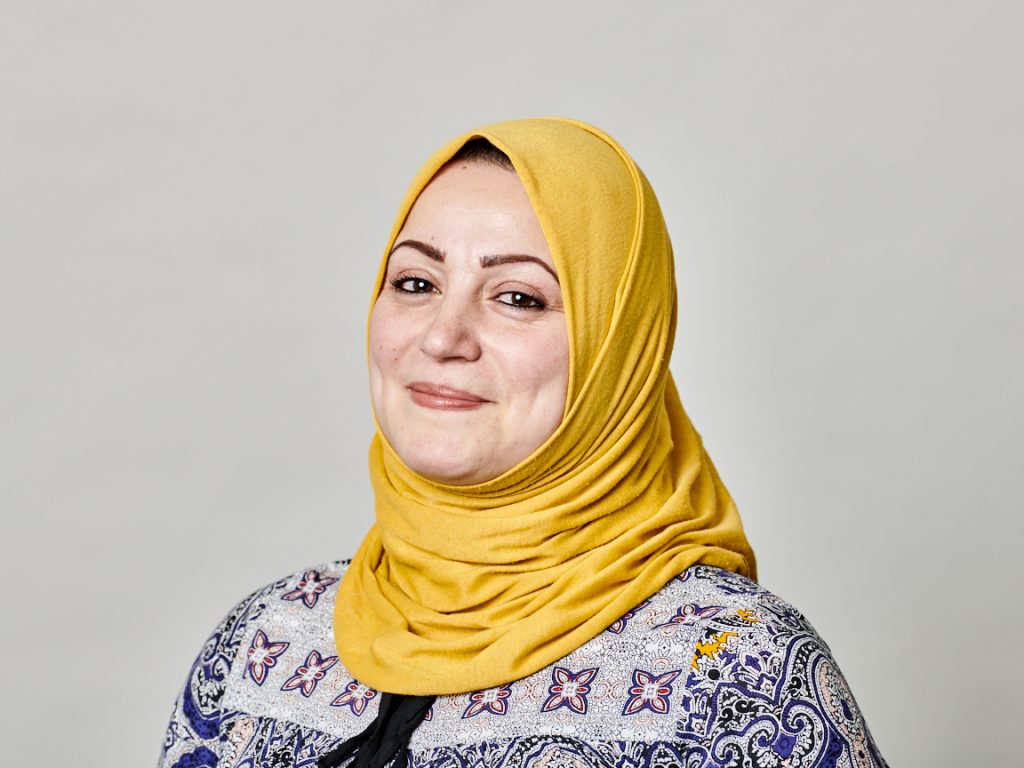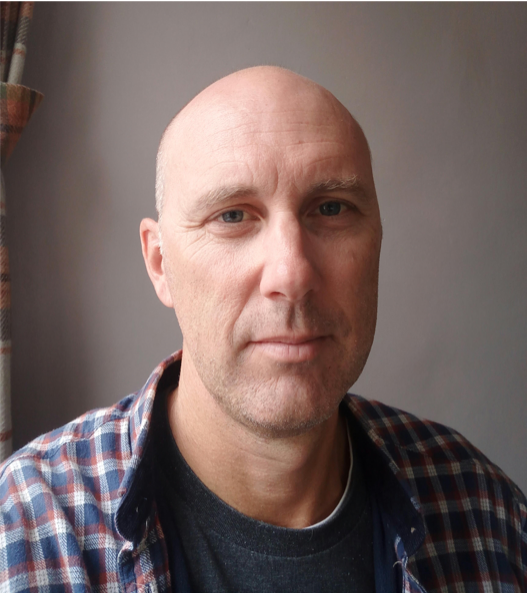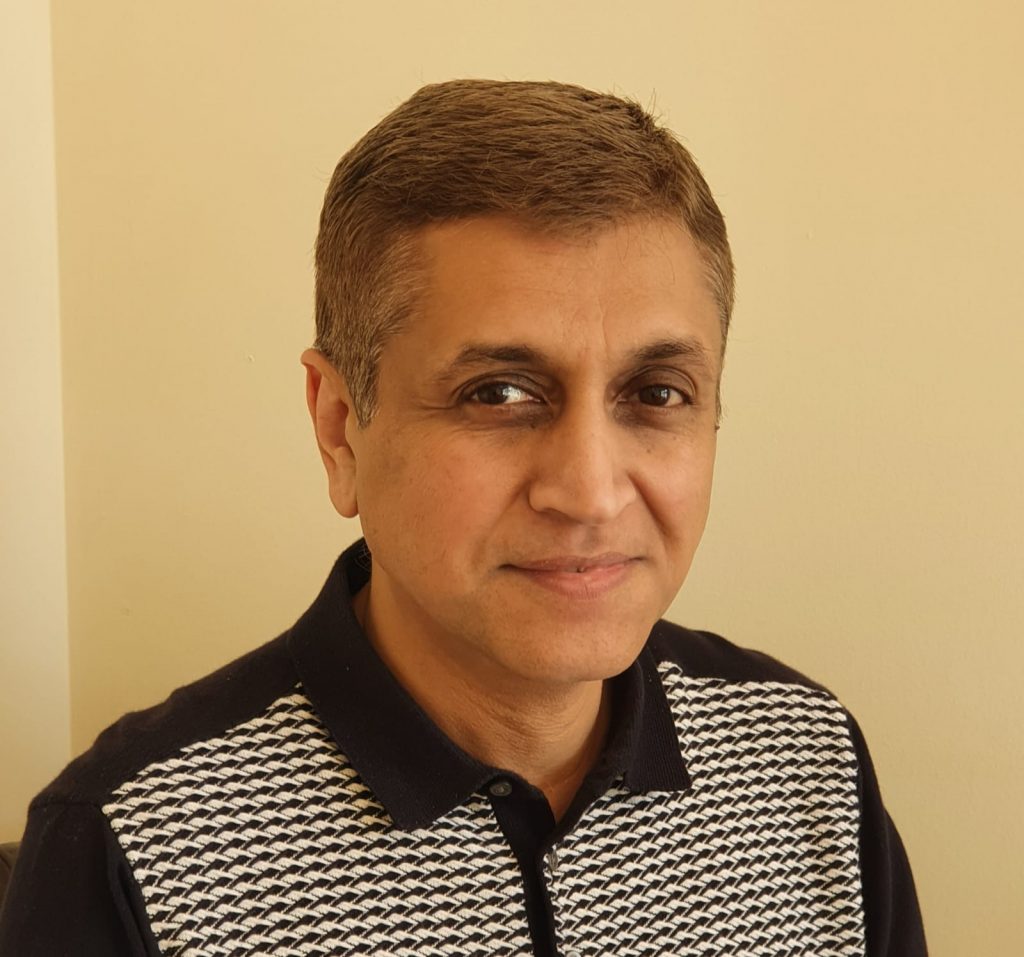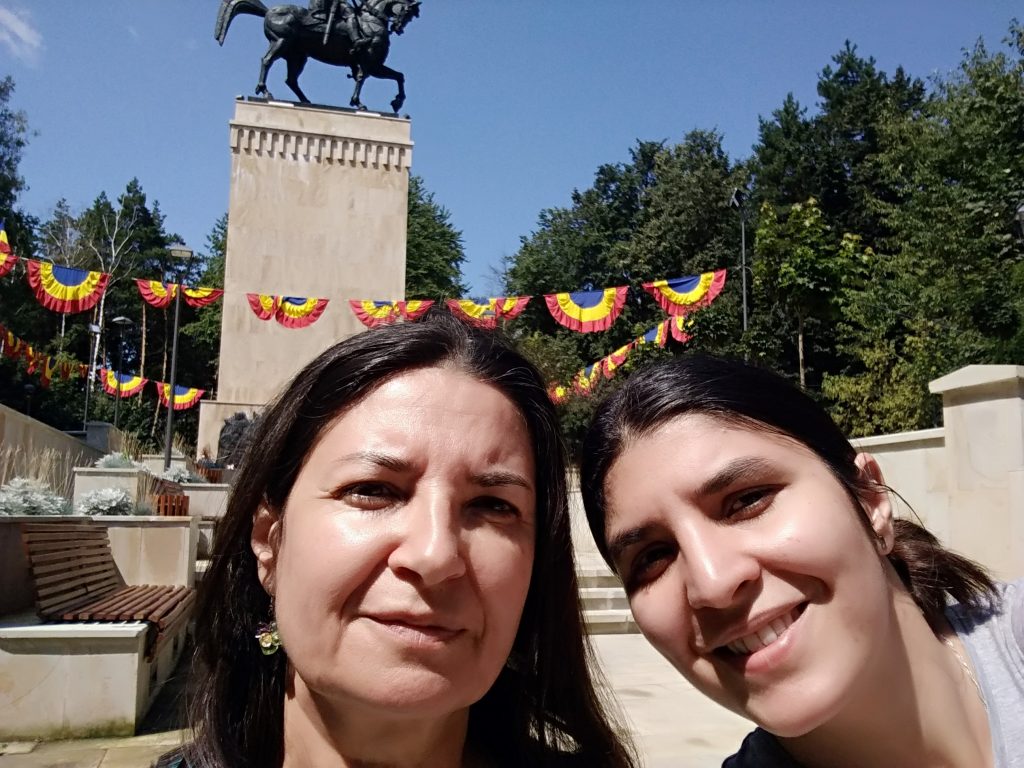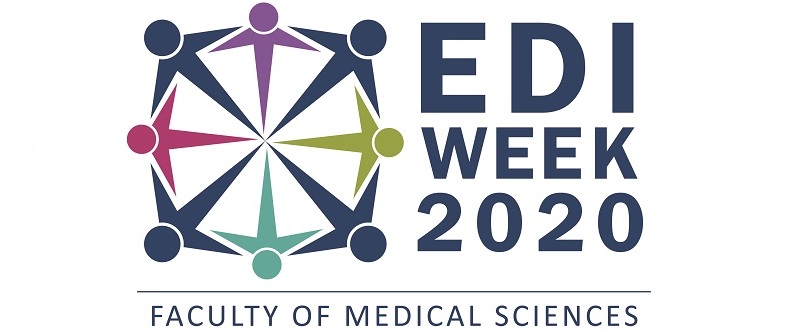In order to help you get to know the wider EDI Team, we’ve been interviewing EDI Leads across the Faculty to find out more about them and the work they do within their roles. Our first interview is with Dr Anjam Khan, the Biosciences Institute Academic EDI Lead.
Tell us a bit about your background, and some of your interests and hobbies outside of work?
I was born and bred in sunny Manchester, it really doesn’t rain there as much as people say! I studied and worked at Edinburgh and Cambridge Universities. I came to Newcastle as a Principal Investigator – I had a five year plan but I’ve now been here for 25 years! It far exceeded my expectations, I love the University, the city, and most importantly I love the people of Newcastle. I’ve had opportunities to move elsewhere, but I’ve been hooked and have been here ever since.
I’m very passionate about research. My research in the lab is involved in looking at the mechanisms of how microbial pathogens cause disease in humans. I’m also interested in vaccine discovery. I’m Director of the Infectious Diseases Facility in the University and the demands of the role have snowballed in the present pandemic towards COVID-19 research, so it’s been really hectic and busy. SARS-CoV-2 fits particularly well with my research interests in vaccine discovery.
As an academic I strongly believe in teaching, it’s really important to inspire, motivate and engage students, whether undergraduate or postgraduate, to show them your passion and interest. Captivating and inspiring the interests of the next generation and showing them the beauty of science is a crucial part of my role as an academic.
In terms of my hobbies, I enjoy football. My father held a Manchester United season ticket since the late 1950s onwards and my family are all supporters of Manchester United. But guess what – I’m the blue sheep of the family, I support Manchester City! That’s caused lots of interesting interactions. I’ve been a lifelong supporter of Manchester City, before they had the money and the success they enjoy now. Cinema is also a strong interest of mine. I’ve got an eclectic taste in films and my favourite directors range from Alfred Hitchcock to Peter Jackson to Quentin Tarantino. During COVID-19, as the cinemas have been closed and new releases put on hold, we ended up subscribing to Netflix and catching up on a broad range of films, especially those that belong to the post-apocalyptic and dystopian genre like The Andromeda Strain or Contagion!
What caused your interest in EDI, and are there any particular aspects that you feel most passionately about?
I strongly believe in social justice, where people are judged according to the criteria of ‘who they are’, rather than ‘what they are’. This passion stems from my own principles, but also from my background. I’m from a diverse ethnic Asian Pakistani background and I was brought up in a white working-class area of Manchester. I witnessed and faced racial discrimination first-hand and in different forms from my early years onwards. One thing that increased my acceptance or ‘street cred’ within my white peer group were my football skills. From playing in the school yard to being selected for trials for Manchester schoolboys and Manchester City Juniors, people saw I was good at football and they accepted me much more easily than if I hadn’t been good at football. I think those kind of ‘credentials’ put you in the in-crowd, but the key thing is that nobody should have to be good at football or something else to get accepted, they should be accepted for who they are and not exposed to prejudice because of colour or religion or ethnicity. Then, as a student in Edinburgh I observed sectarianism and how supporters of two main rival football clubs, Hearts and Hibs, were polarized based on religious divisions, belonging to the Protestant or the Catholic religions, and seeing the tensions that existed amongst some rival fans and supporters.
I think one of the key issues we have in society and the world globally is that people focus on differences; what makes me different from you, rather than looking at what people have in common. If people looked at what they had in common with others, the world would be a much happier place to be in. You can take it down to religion, to what city you’re from, you can take it down to which side of the street you come from.
Through education, through knowledge and understanding, we could change people’s perspectives and I think that should really begin at home, then at school and so on. If you look at young children, they tend to be colour-blind. Children don’t see the differences we see as we get older, which is fantastic. I think we’ve got a lot to learn from the minds of young people.
What made you decide to take on the role of EDI lead?
Biosciences (NUBI) is a new institute that’s been formed following a major Faculty restructuring and is one of the biggest institutes; there’s about 150 academics, with Professional Services and People Services Staff, and a large number of postgraduate students. The reason I applied for the role was that I’m passionate about social justice and equality for all. In my view, universities should be really bastions of EDI and I think if we are being sincerely self-critical, it is clear in recent years they’ve fallen short of that role. The Higher Education sector in general has dropped well behind where it should be in 2020. If you look at newly emerging companies and businesses in the commercial sector, such as new IT companies, biotech companies, they’re much more proactive in EDI and I think it’s been a bit of a catch-up exercise for universities that’s only really begun recently.
In terms of Newcastle, we’ve got positive histories in supporting black equality. Back in 1967 Martin Luther King was awarded an honorary doctorate by the University, the only university in the UK that awarded him that doctorate during his lifetime. In 2019 the University named a new building after Frederick Douglass, who was an enslaved Black man who became an abolitionist and spent time at Newcastle; he gave an anti-slavery lecture before he became a free man. There’s good history there, and reveals strong positive values on equality, but Martin Luther King was here in 1967 and that’s a long time ago now, and again, naming a building after somebody isn’t necessarily helping EDI per se within the University. When the EDI Academic Lead position became advertised, I applied for it, but the last thing I wanted was a ‘yes-no’ tick box system where we say, yeah, we do EDI, here’s a tick. I wanted to be proactive and involved in the process of promoting and embedding EDI within the culture of the University. I thought this was a great opportunity to contribute towards promoting EDI in the Institute, the Faculty and the University, and to make a genuine and positive impact.
Following the major Faculty restructuring, EDI appeared to become embedded and embraced in the new Faculty structures in a way I didn’t expect, and I was really happy to see that. Most importantly, seeing the wonderful commitment to EDI of my boss and NUBI Director Joris Veltman, and Helen Miller who’s NUBI Head of Operations, made me feel that I could get the key support needed to make changes if they were required, and have a real impact on promoting and embedding EDI within the university culture. We’ve also got some good people in place for guidance and support like, Malasree Home the Faculty EDI Officer, as well as the newly appointed Faculty EDI Directors Amy Reeve and Damian Parry, Judith Rankin the Dean of EDI, and Julie Sanders the Deputy VC, who’s leading on EDI and the Race Equality Charter. Collectively we have a great team and I feel we can make a genuine difference at the Institute, Faculty, and University levels.
What are your main responsibilities as an EDI Lead?
Key responsibilities include leading on Biosciences Institute EDI activity, including identifying, promoting and sharing best practice and effective initiatives. Ensuring strategies, policies and practices encompass all protected characteristics, as well as supporting Faculty level EDI activity, including Athena SWAN and reporting to Institute Executive Board and Faculty EDI Committee.
It is vital to have representation across all sectors of NUBI and listen to a range of voices and perspectives to create more effective strategies for change. I have established and now lead a Biosciences Institute EDI Steering Committee to help promote and nurture a culture of EDI within the Biosciences Institute. The Steering Committee includes an Academic Lead, myself, but also Professional Services, People Services, and Postgraduate Research Student Leads. We now have two Postgraduate Research Student leads which is great because we’ve got a big PGR community. We wanted to have a cross section of the Institute on the committee, so I have approached the Research Theme Leads from the Institute to identify people that could be EDI representatives. I was really surprised at the passion and enthusiasm of so many people! Some of the younger staff, early career researchers and postdocs were keen to get involved, but they had no experience – they are now going to be mentored by more experienced people in those themes, and for some themes we’ve got two joint leads. In total as of yesterday, we’ve got 20 members on the steering committee! I’m really pleased with that because it means we can reflect across the different sectors of the Biosciences themes. The Biosciences Institute is based across six or seven different sites across campus and these representatives are spread across those different sites as well. From my viewpoint, the more voices we can have on the committee, the more perspectives we can bring in, the stronger and richer our committee will be. We will hopefully be able to engage all the Biosciences Institute in becoming active in EDI.
One of the other important tasks I really want to do early in this journey is create a website in Biosciences to promote EDI and include our mission and vision statements, useful networks and training opportunities, details of the composition of the Biosciences EDI Steering committee with contact details. If anybody’s got questions, they can easily approach somebody they feel comfortable to speak with. More importantly, I also wanted to have report and support pages. There’s an online form where you can give feedback either anonymously or by name, and say, “This is how we can make Biosciences even better for EDI,”. We’ve also got another very important online form, to allow people who feel they experienced or witnessed issues to come forward and confidentially report them to receive support. Alternatively, issues can also be reported anonymously. I think this feedback and reporting system is really important to enable us to capture any issues which aren’t coming through at the moment. People are very different, I think part of the EDI committee’s role is really to empower people to feel more confident to come forward and raise issues, and for us to demonstrate that those issues will be taken seriously and dealt with appropriately. These issues could be micro-aggressions or something more severe, and this is now an invaluable reporting mechanism to identify and support staff and students.
It’s been a very busy time now, especially sadly with the events in the U.S. and with tragic death of George Floyd. I’ve had a lot of concerned and understandably distressed Black postgraduate students and staff wanting support and help with race issues, and wanting to know how the University were going to address and support the issues raised. This was particularly important as we are in the midst of a pandemic which disproportionately effects the health of people of colour, and many students and staff felt isolated with no support. There are important actions now being taken across the University to address the important points and major concerns raised, and are being dealt with urgency.
Do you feel that you’ve had any prior roles or experiences to help you prepare for your role?
Sure, as I hinted before in my younger days I have faced and witnessed racial discrimination. I’ve also been a member of the University BAME steering group and have dealt with important equality issues. So I’ve got insights into how EDI is organised and operates in the University, and has also introduced me to various people in our University EDI teams who I can go to for advice.
What are the main things that you would like to achieve as an EDI Lead?
I think the University has made excellent progress in the last five to ten years on gender equality, receiving the Athena SWAN accreditation at Silver level. Looking ahead there are important objectives I would like to address. First, I would like to build upon the success of Athena SWAN and help contribute to take this to the Gold level. We also need to expand family-friendly and flexible working policies to support staff and students, and we have shown in the pandemic this can be done effectively.
Very importantly we need to broaden the EDI agenda and intensify the amount of work which is being conducted across other protected characteristics. This is especially true now with the alarming issues of race inequalities in society which have recently surfaced and have been articulated by the Black Lives Matter movement. We need to be totally self-critical of our approach and policies to race inequalities, and investing significant amounts of time and resources into addressing the concerns raised. We then need to have an action plan with measurable outcomes. The University have signed up to the Race Equality Charter, and now an increasing number of activities are being taken behind the scenes at the Institute, Faculty and University levels to begin to address race inequalities. These steps have already generated significant momentum in driving this objective forward.
Stress and anxiety have been witnessed at elevated levels in the Higher Education sector, from the undergraduates to the postgraduates to staff. I think that support needs to be delivered for mental health and wellbeing. There’s a lot more we can do – fortunately during the COVID lockdown the University has been quite active in promoting health and wellbeing – but I think this needs to be carried forward. If you look at the population structure across the UK, at undergraduate and postgraduate age cross-sections, the stress that’s reported is much higher in students than in other sectors of the population in the same age range. I think we need to find out what the reasons are for that, help educate everybody on those reasons, and understand how we can deal with these issues. I’d like us to be more proactive and provide support.
As the Director of the Infectious Diseases Facility, as Chair of the NUBI GM and Microbiological Hazards Committee, and as a PI working with microbial pathogens, training and monitoring staff and students in Health and Safety is a mandatory requirement. I think EDI training should also be given the same importance, as this can have a long-lasting impact on people’s lives, opportunities, and futures. EDI training should be made mandatory for senior management, for supervisors, for anybody who’s involved in the selection and promotion processes, such as for example unconscious bias training as it’s something that everybody is subject to. If you’re aware of unconscious bias issues, you can then compensate and make the necessary adjustments to reduce its negative effects, and be impartial and objective in every situation you can be.
At the same time, all staff and students should be encouraged to attend and participate in training courses on EDI. If you look at the University portfolio, there’s quite a few training courses you can do online. Staff and students should complete these, the same way as we do with health and safety courses.
What do you think your favourite thing has been about the role so far?
Meeting the fantastic staff involved in EDI across the Institutes, Faculty, and University; and seeing their genuine passion, enthusiasm and commitment to promote EDI. The Faculty EDI Officer Malasree Home has been great, and really helpful and supportive answering my many questions. That’s the thing I’ve been surprised with, it’s how many new people I have suddenly grown to know and be supported by in the University, as well as meeting new people who feel the same way about equality.
Is there anything that you hope to learn through this role or that you hope it will teach you?
In this role I have been continuously acquiring new knowledge on EDI. You keep your eyes and ears open to pick up new information, training courses, and reading about EDI initiatives in different sectors. It’s increased my knowledge and understanding of EDI, and also importantly given me insights into people as well. I hope to learn from these processes and to engage all staff and students to proactively promote EDI across the university, as equality benefits all.
Thank you to Anjam for taking the time to speak to us and share his thoughts. To see a full list of the current EDI Team, click this link.
